I nearly died of anorexia, now I help children with mental health issues
Cassie Swift, 41, developed anorexia when she was in her teens. By the time she was 18, she was so ill she had heart damage and doctors told her she would never have children. Then, in 2009, she fell pregnant and everything changed. Her children are now aged 14, 12 and nine. Now a life coach, helping children and young people, here’s her powerful story…
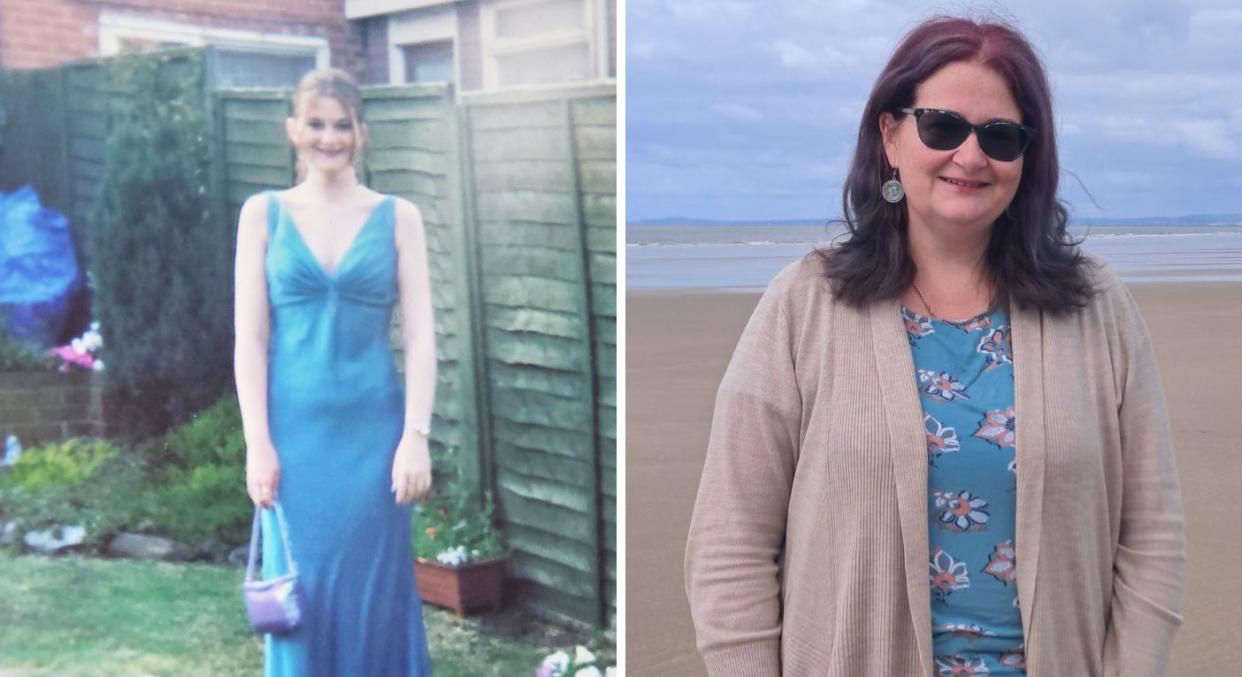
I've always struggled with my weight. At the age of seven, I was referred to a dietitian, so from that young age I was being weighed regularly and having to watch what I ate.
By the time I was 13, I weighed about 12.5 stone (80kg). The bullying at school was relentless. I was miserable. And so, on the advice of the GP, my mum took me to Slimming World.
I lost three stone (19kg) in a year and started making new friends. That’s when the obsession started because I made that connection in my head – weight loss equalled friends, or put another way, my worth was my weight.
Then, when I was 11, my dad left and distanced himself from me. I began to put pressure on myself academically. I thought if I could do well at school and lose more weight, then he would want me. When he came to my 14th birthday party however, he didn’t even notice I’d lost weight.
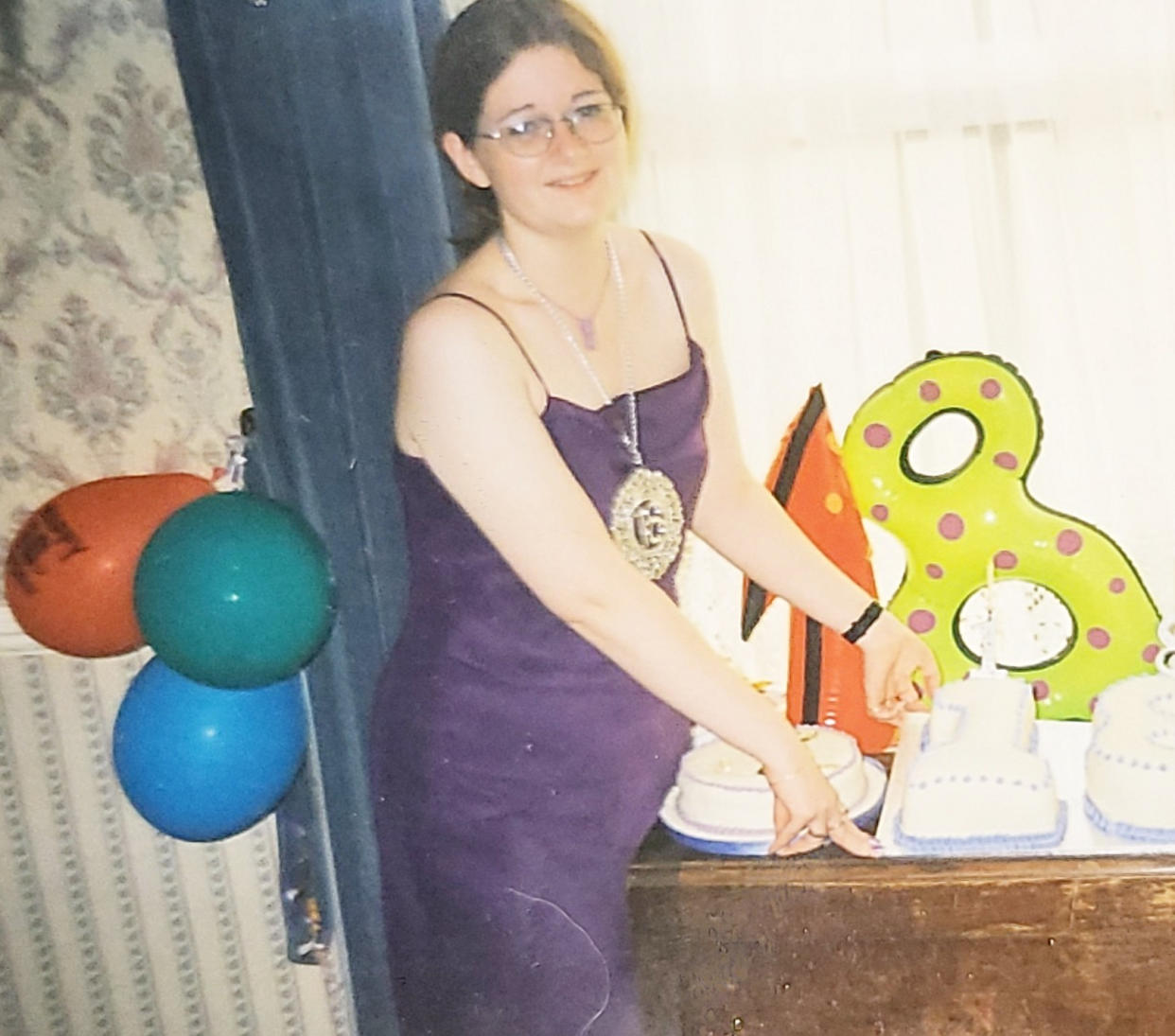
Cycle of deceit
For my Prom, aged 18, I had a dress that didn’t quite fit and I wanted to get into. That’s when I started to lose weight dramatically.
The excuses started then – and the deceit. My mum would make lunch for me and it would go in the bin. I’d sleep over at friends’ houses so I could skip mealtimes.
Then at 18 I went to uni in London and that’s when the eating disorder really took off. This can often happen – moving away from home can be overwhelming, and food is one thing that you have 100% control over.
My mum would make lunch for me and it would go in the bin. I’d sleep over at friends’ houses so I could skip mealtimes.
I would cook for my flatmates all the time but eat nothing myself, making excuses that I’d 'been picking' too much whilst I was cooking.
By the end of my first year, I was about eight stone (50kg) – very little given I was 5ft 7inches (1.7m) tall.
I didn't go back home for weekends for ages because my mum kept nagging me about my weight but by this time, the eating disorder voice that I now call Anna had completely got control of me.
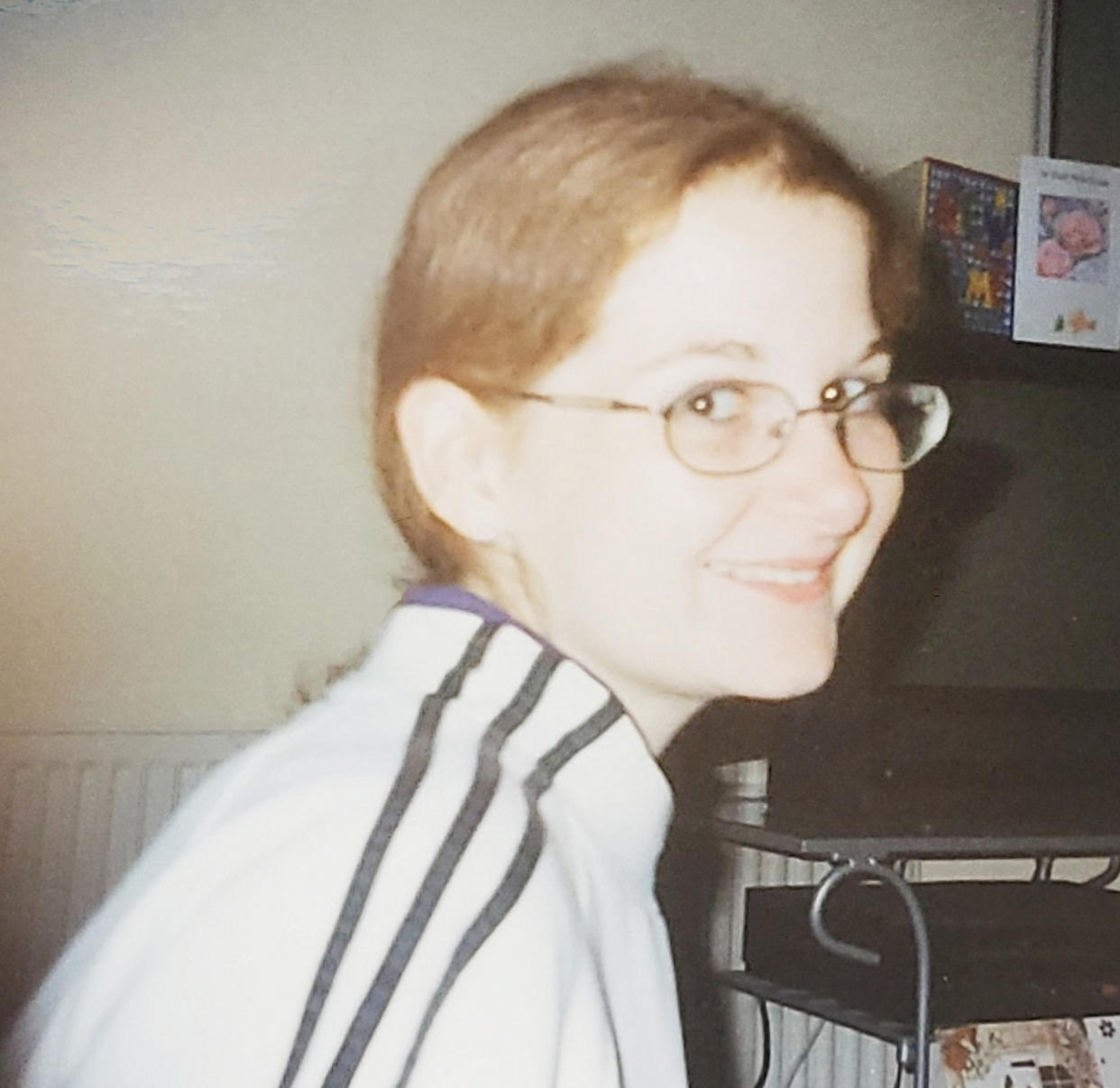
Seriously ill
The trouble with 'Anna' was that she started as a cheerleader, my best friend, telling me, "You haven’t eaten today – well done!" but quickly turned to manipulating every decision I made.
I hardly ate anything for about eight weeks. As someone with an eating disorder, you become very good at cutting up food and moving it around to look like you’re eating.
Sometimes, if I went out to eat, I'd have a bag in my bag and half of my meal would go in there. I felt awful deceiving people but to me, a plate wasn’t food, it was numbers. I knew exactly how many calories and fat were in things and that voice in my head told me, 'You can’t eat this.’
At the start of my second year at uni I weighed six stone and one day, I passed out, purely because I had absolutely nothing in my body.
My head lied to me. When I looked in the mirror I saw I someone who was overweight, even though I knew I could feel my bones. I’d get to eight stone (50kg) and the voice would say, oh wouldn’t seven something be nice and so on.
At the start of my second year at uni I weighed six stone (38kg) and one day, I passed out, purely because I had absolutely nothing in my body.
I knew something was wrong and that I needed help but I couldn't verbalise it, because the voice said, 'If you say anything, you're a failure. We've got this far. We can keep going.'
Eventually, when I was five and a half stone (my lowest weight, 35kg) and in a wheelchair and had chest pains, Mum took me to A&E.
Period stopping
My periods had stopped. I had hair growing all over me and I couldn’t sit down because my bones jutted out.
In hospital, they tried to take blood but couldn’t. Because I hadn’t been eating or drinking, it had turned sticky like syrup.
My heart muscle had decreased to quite a dangerous level. It was then that they diagnosed anorexia. My mum was told they didn’t know if I’d live.
They did scans, and my heart muscle had decreased to quite a dangerous level. It was then that they diagnosed anorexia. My mum was told they didn’t know if I’d live.
I was pretty out of it but I remember hearing a doctor from behind a curtain say to some medical students: this is the worst case of anorexia we’ve ever seen. When they came to look at me, I remember the expressions on their faces. I thought wow, I did all this for people to like me and now I am like an object in a zoo.
They said I had to eat – obviously – otherwise they’d section me and tube feed me and so I agreed to drink these ‘Fortisip’ drinks – nutritional supplement drinks. As sick as I was, my need for control meant everything had to be done on my terms.
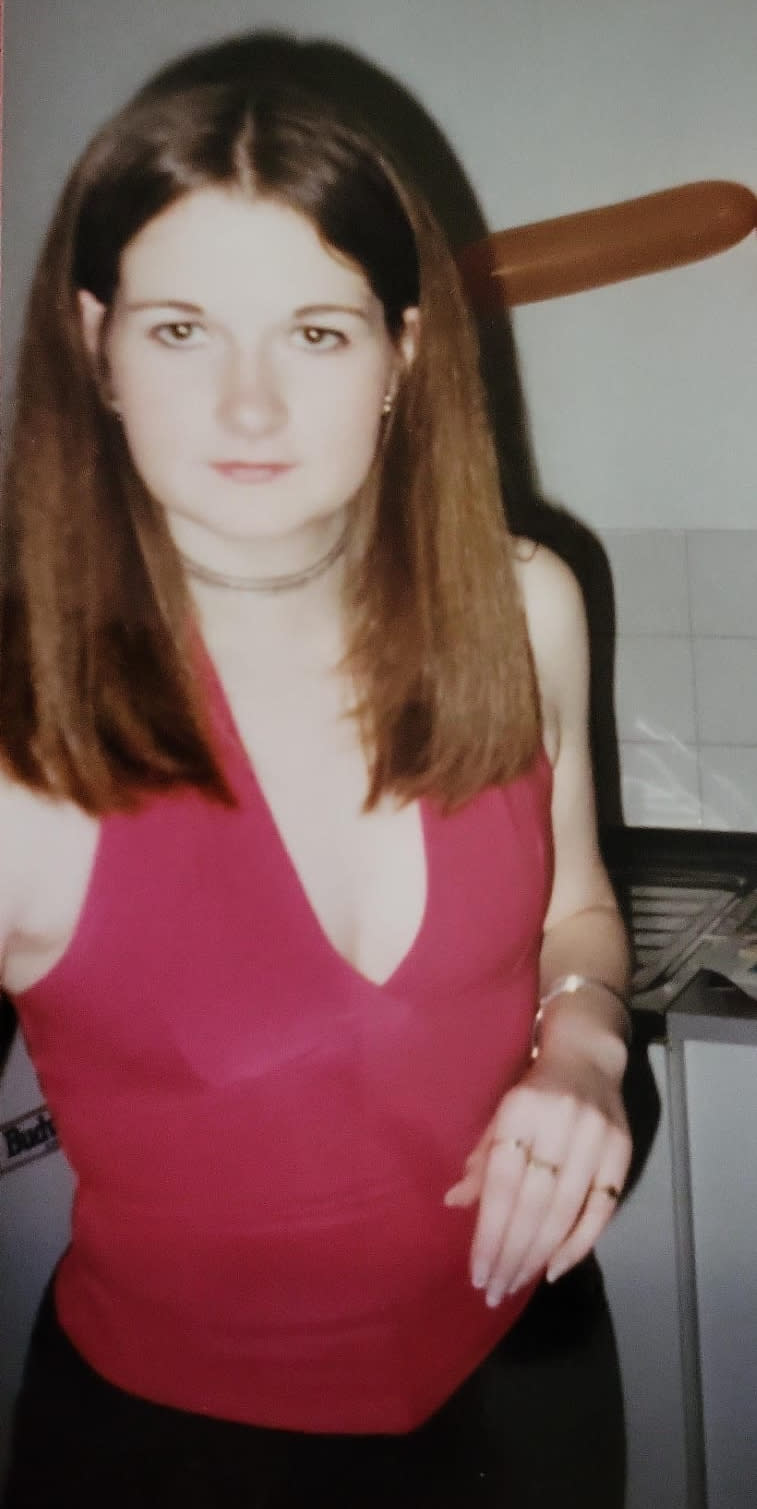
Hospitalised for my own safety
I was in hospital for a couple of months and then in February 2003, I was admitted to a specialist eating disorders clinic in London and stayed there for around seven months.
It doesn’t exist anymore which is good because the methods they used were antiquated even then.
Their ethos was to 'weight-restore you' which basically means fatten you up. So, we had to eat 3000 calories a day: full-fat milky drinks and biscuits, cooked breakfasts and sponge puddings. It was an insane amount of food.
The hospital's ethos was to 'weight-restore you' which basically means fatten you up.
I – like many anorexics – did not like eating in front of people, so I’d eat it in my room. There were windows in the doors so the staff would walk past and look in to make sure you were eating, but the trouble was you learned tips about where to hide food where the staff couldn’t see, like on the windowsill behind the wardrobe.
I lost control of everything in there, you’re not even allowed a mobile phone. I was putting on weight and I didn’t like it. That’s when the self-harm began out of sheer frustration – another form of control.
About three months into my stay, I was kept in my room for days because they were so worried about my mental health. I was only allowed to leave to go to the toilet and be weighed. But obviously that just made me worse.
At one point we had to prepare a meal for ourselves, to learn how to eat ‘normally’. We were making jacket potato with tuna, but we weren’t allowed butter or mayonnaise because they were ‘bad for you’.
So, we had to make a dry jacket potato with two tins of dry tuna on it. There was nothing ‘normal’ about this meal and again my brain was like, 'Well, if you can have two tins of tuna and that’s not disordered eating, then why can't you have five chocolate bars and then make yourself sick?'
And then when you get to your target weight, because they’ve been feeding you so much, they have to start taking things out of your diet. So, suddenly, you can’t have pudding, or you can’t have toast.
This is the vicious circle of treatment for eating disorders – you become institutionalised. You can only normalise your weight in hospital, then as soon as you’re discharged, you go back to restricting food and get re-admitted...
In an anorexic’s head this translates as, 'They’re restricting my food because I’m getting fat.' This is the vicious circle of treatment for eating disorders – you become institutionalised. You can only normalise your weight in hospital, then as soon as you’re discharged, you go back to restricting food, get re-admitted and on it goes.
By about September in that clinic, my weight had normalised. But I’d been told due to the damage I’d done to my body, I wouldn’t be able to have children.
I’d always wanted to become a mum, so this was devastating to me and yet another thing to deal with.
In late 2003, I discharged myself from the clinic but mentally, I was the worst I’d ever been.
The self-harm increased. I had to be admitted to hospital for stitches on numerous occasions and I started binging and purging (making myself sick).
The self-harm increased. I had to be admitted to hospital for stitches on numerous occasions and I started binging and purging (making myself sick) which was new.
Not long after I came out of the eating disorder unit, I took an overdose and was admitted to a psychiatric hospital which turned out to be one of the most terrifying experiences of my life.
People would be held down by three or four members of staff and be injected to knock them out. I had a woman following me around constantly screaming she wanted to kill me because she thought I was a spy. I was terrified but told by staff just to ‘stay out of her way’.
I made two more attempts on my life during that time and on the third time, which was at home, because I’d managed to get weekend leave, I nearly succeeded. I was taken to A&E by a friend who found me. When I got there, the doctors said if I'd been 10 minutes later, I wouldn’t be here.
I went back into the psychiatric hospital and didn't come out until April or May of 2004.
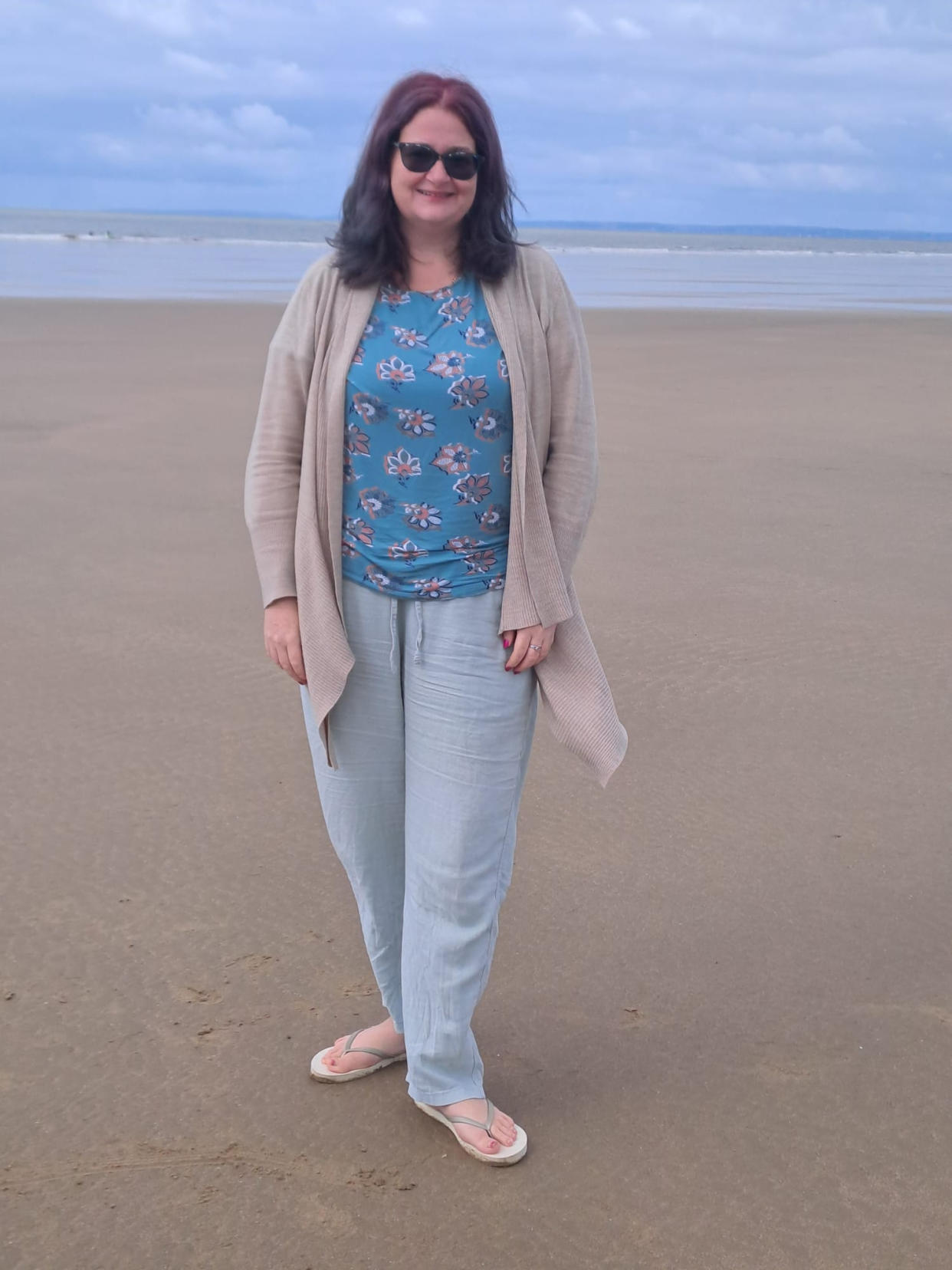
A turning-point
After that, there were periods of stability but my mental health was still not good. Then, in 2009 I found out I was pregnant which changed everything for me.
I knew I could no longer drink too much. I could no longer hurt myself. I could no longer mess around with food, because it would harm the baby and social services would get involved.
I wanted nothing more than to be a mum and so in a way, getting pregnant saved my life. I suddenly thought, 'Maybe things can be different?'
I wanted nothing more than to be a mum and so in a way, getting pregnant saved my life. I suddenly thought, 'Maybe things can be different?'
That was 14 years ago now – I've had two other children since then and they are my reason for living and doing the work I do in children’s mental health.
Have I recovered? I believe you have never fully recovered from an eating disorder. It’s a bit like self-harm in that it’s an addiction, which means it gets worse the longer it goes on because you’re reaching for that adrenaline hit all the time.
Helping other vulnerable children
In 2018, to help parents and children – including my own – I set up a children’s mental health group. Then, in 2022 around Children's Mental Health Awareness Week, I put a message on Facebook asking if anyone wanted to come to my group and talk.
Within an hour, I had 50 people saying they wanted to come and the Children’s Mental Health Matters Summit was born. I organised and put on that first summit in two weeks. It was exhausting but so worth it.
It’s a ten-day event and this year I've got 57 speakers from all over the world, all experts on children’s mental and emotional health, speaking on topics from self-harm to nutrition, depression and anxiety.
The summit has given me a great sense of purpose. Above all, I just want to empower parents and young people and to give them hope.
Hope means so much to me. If you can give someone hope, they've got something to aim for. A reason to move forward and ultimately to live.
The Children’s Mental Health Matters Summit 2024 starts on 16 September and runs for 10 days. It is free and features over 50 expert speakers.
Read more
I was sectioned because I only ate 40 calories a day (Yahoo Life UK, 7-min read)
I lost five stone due to an eating disorder, but love helped me through (Yahoo Life UK, 9-min read)
My weight loss journey took me from obesity to anorexia – but now I'm fit and strong (Yahoo Life UK, 7-min read)


